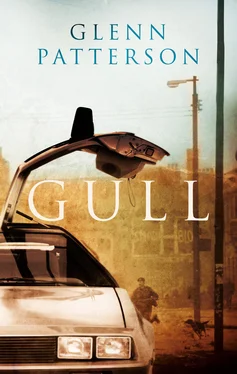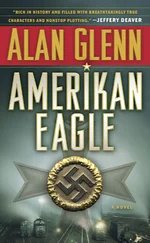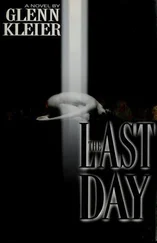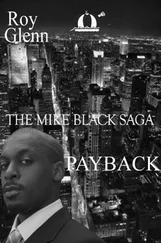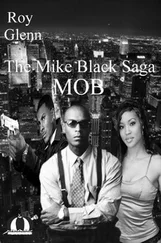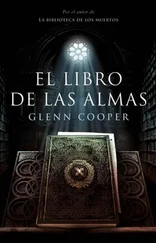Randall was scarcely in his office at all the rest of that month, but toured the shop floors, the stores, the holding tanks for the resin, chivvying, encouraging, asking questions, on the spot or on the phone: those pallets arriving at the dock levellers — stacking up at the dock levellers — was there any way of speeding up the inspection? Yes, this was Mr Randall, yes he was ringing — for the fourth time now — to enquire about the automated fettling tool… Where in God’s name was it?
He was not above donning coveralls and pitching in, starting in that fettling room where, in the continued absence of the damned tool, they needed all the help they could get. (And needed too more than just a set of coveralls: they needed hoods, a personal air supply.) God it was grim: every particle of excess fibreglass — ‘flash’ — to be removed by hand, and to hang, most of it, in the air, before the bodies were fit to leave the body-press shop. He helped cut the mats for the moulds (another process that had not yet been automated), he stripped the plastic coverings from the panels as they were being stacked on their racks (a process he doubted ever would be), he took a blowtorch to dents, sandpaper to scratches; once, while one of the men who usually did it was at the restroom, he had a go at centring the first — and crucial — roof panel to see if it could be done faster. It took the man on his return ten minutes to repair what he had done.
He did everything but switch out the lights at night.
At the end of each day he dragged himself back to Warren House and stretched out on a sofa positioned between a pair of tall, narrow speaker cabinets, listening, eyes closed in concentration, to whatever records he had that week borrowed from (or — as most often was the case — had not had time to return to) the record library. More than once it was the hum of the speakers that woke him — shivering, disoriented — hours after they had last emitted a pre-recorded note.
And so March passed. Two more prisoners — a soldier-killer and a guy caught on a street with a hand grenade — joined Sands on hunger strike. The lots continued to fill with cars.
April nineteenth, Easter Day, crept in through a damp mist that lingered into the morning and low to the ground with the curious effect that when the sun did at last appear the maisonettes looked like skyscrapers, breaking through the clouds, the hills beyond them virtual Himalayas.
The rigs had been travelling back and forth since nine o’clock the night before, but there were still, twelve hours on, scores of cars waiting to be transported to the docks.
Even though it was a Sunday — even though it was Easter — there were also, by nine a.m., scores, possibly hundreds of workers gathered. Unlike previous red-letter days theirs, today, were the only cameras in evidence. They snapped away as the cars were loaded, posing their workmates by the tailgates then passing the camera to someone else whose place in the group they took, arms folded, grinning. As each fully laden rig headed towards the exit some of them ran alongside, taking more pictures. Others stood and cried. Randall, once or twice, had to widen his own eyes to keep them from filling up. (It was, despite the sun, a watery kind of morning.) Refocusing after one such moment he saw Anto break away from a group of half a dozen women and men and walk towards him, eyebrows knitted.
His heart sank.
‘A word?’ Anto said.
‘What is it?’
‘A few of us have been talking.’ This with a jerk of the head back the way he had come. Randall couldn’t be doing with the theatrics.
‘And?’ he said shortly.
‘And we’re not happy.’
‘Well there’s a surprise.’
‘Some of the cars have been parked out here so long they’re filthy.’
Randall looked long and hard. The man was right. How many times had he stood at his window watching the clouds tumble over the brow of the hills, bringing the next weather front? Whatever soot and dirt they had picked up on their race across country to get there this lot took the full force of it.
‘We were thinking maybe we would go down to the docks later on before they were put on the ships, give them a bit of a wash.’
Randall turned to face him, struggling for words.
‘It’s all right,’ Anto said to him, ‘we’re not going to be looking for overtime for it… Just this once.’
*
Liz watched from a distance. Anto had told her what he and the others were planning on doing. ‘Can’t have those Americans thinking we’re all a load of dirt birds.’
‘I’d love to help,’ she said, ‘but we’re having people over later.’
‘I know: Easter.’
‘Have you no plans yourself?’
‘Me?’ His voice went up as though the very thought of it was absurd. ‘No.’
It occurred to her that she didn’t know a single thing worth the knowing about his life outside the factory, other than that he was wearing out his library card. ( The Jungle was his latest book. Something told her there were no talking animals in it.) Not that he could have known a big lot about her life, having never bothered his head to ask.
When the last of the lorries with the cars on them had gone she raced home and got the roast on — silverside — with onions cooked in the juices until they were practically caramelised. Robert’s mother and father came, along with his unmarried brother Hal-God-Love-Him (it was said so often it sounded like part of his name: there was something not quite right with Hal… God love him) and an aunt of Liz’s who had just lost her husband of forty-seven years. Everyone commented on the television. Robert showed them how you used the remote control, ran through a random Ceefax selection: TV listings, share prices, a recipe for hollandaise, the weather in Kuala Lumpur.
Didn’t say a word about how they had come by the set, which suited Liz fine: it had been fully incorporated into the household — it and the job that had put the money in her purse to give to Gilmore’s.
When the last guest had gone — the aunt, reluctantly… sure, what was there for her at home now? — and the boys had disappeared up to their room with what remained of their eggs (what age were you supposed to stop buying them?), Robert switched the TV on again to the big film: Murder on the Orient Express .
About twenty minutes in he turned to her.
‘Was it those onions?’
‘Was what those onions?’
‘You’re squirming in your seat there like I don’t know what. I thought maybe you had a touch of indigestion.’
She blushed. What it was, she realised, she had been miles away, down at the docks with Anto and the rest, washing cars. She tried to focus on the film. Richard Widmark was showing Albert Finney the small silver gun he slept with under his pillow. His life had been threatened, he said: his secretary could show Finney two letters he had on file.
‘It’s nothing,’ Liz said.
Robert looked at her looking at the film a moment longer. ‘Well I’d hate to see you if it was something.’
*
Randall stood in a canopy of sodium light watching, heart in mouth, as the crew gathered in the ropes and the ship gradually detached itself from the dockside. The cargo doors did not burst open as he had feared, in some grotesque Easter parody, they might. The cars remained, gleaming, in the hold.
The channel was broad and straight from the port into Belfast Lough and the open sea beyond. On the far side of the water from him was the shipyard. Those two enormous yellow cranes, stamped with H & W, Harland and Wolff — gateways they looked like, triumphal arches: Forget the City Hall, forget the factory chimneys and the parades of shops, this is where the real power resides .
Читать дальше
